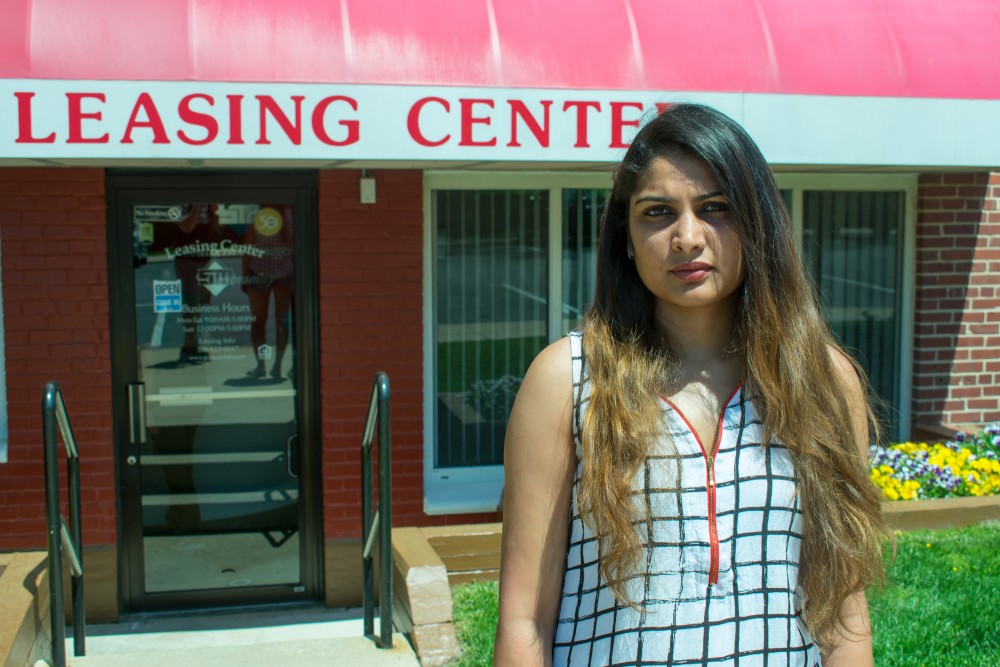On top of finals this semester, first-year University of Maryland graduate student Sarayu Raghunandan has to worry about an increase in rent for her two-bedroom apartment in Graduate Gardens.
“Coming at this point in time, at the end of the semester when we’re all having our exams, it’s kind of big news for us,” said Raghunandan, a project management master’s student who shares her apartment with three roommates.
From 2016 to 2017, rent at Graduate Hills and Graduate Gardens — the only designated graduate housing communities partnered with this university, according to the Department of Resident Life’s website — increased by $14 per month. This year, rent increased by $37 per month.
Each year, before the rent is finalized in May, Southern Management and university representatives hold a forum to address student concerns and answer questions. This is not to negotiate rent, but to hear feedback, said Dennis Passarella-George, Resident Life associate director for South Campus.
Jeff Reader, the apartments’ property manager, wrote in an email that Southern Management notified tenants several times of the hearing before April 11. When the date arrived, only three residents attended, he wrote.
[Read more: Even after apartment developments, most UMD underclassmen still live on campus]
While university President Wallace Loh said the administration is “committed to keeping housing as affordable as possible,” he added that the campus is not exempt from typical market forces.
“As long as you have a market economy, the only real way of bringing down those prices is by increasing the supply,” he said, adding that the university has discussed constructing a new housing development for graduate students.
In the meantime, first-year master’s student Aakash Aggarwal — who also shares his two-bedroom Graduate Hills apartment with three roommates — said this increase in rent will force them to make cuts and modifications to an already-tight budget.
“Even a minor increase in rent impacts us deeply,” said Aggarwal, a telecommunications master’s student.
Aggarwal, an international student from India, said he does not have a job or a graduate assistantship, so he relies on financial support from his parents to pay his rent. Though Raghunandan, also an Indian international student, had a teaching assistantship with the civil engineering department this semester, she needed help from her parents to pay rent as well.
Raghunandan said one of her parents’ salaries goes toward her living expenses each month. She said this rent increase will also, “cut corners back at home.”
“And as adults basically, we find it very difficult to ask our parents that we need more money now because there’s been a rent hike,” she added.
Management of the two buildings is outsourced to Southern Management. Passarella-George said that Southern Management understands that many graduate students are financially strained and is, “committed to keeping their increases as low as they possibly can.”
[Read more: “People are really struggling”: grad student survey shows widespread financial insecurity]
“But in order to run their property … they’ve got to have some flexibility to set their rents in a way that meets costs and the demands of service and repairs they need,” he said.
Passarella-George said the company operates under a ground lease with this university, which sets guidelines it must follow when setting rent. For one, he said the lease requires Southern Management to compare its rent each spring to the average rent at six comparable facilities in the surrounding area.
Krithika Mutuguppe, a cybersecurity master’s student who lives in Graduate Hills, is working with Graduate Student Government Student Affairs Vice President Xu Han to develop a petition for Southern Management to reduce this year’s rent increase to a rate more similar to last year’s.
Raghunandan’s nine-month assistantship will be terminated at the end of this semester. If it’s not renewed next semester, she’ll have to find a part-time job and work about 15 hours a week to afford the cost of rent, even with her parent’s assistance, she said.
“It’s going to affect my grades,” she said, noting that these hours will be subtracted from the time she can focus on her school work. “I am very much worried about that.”



